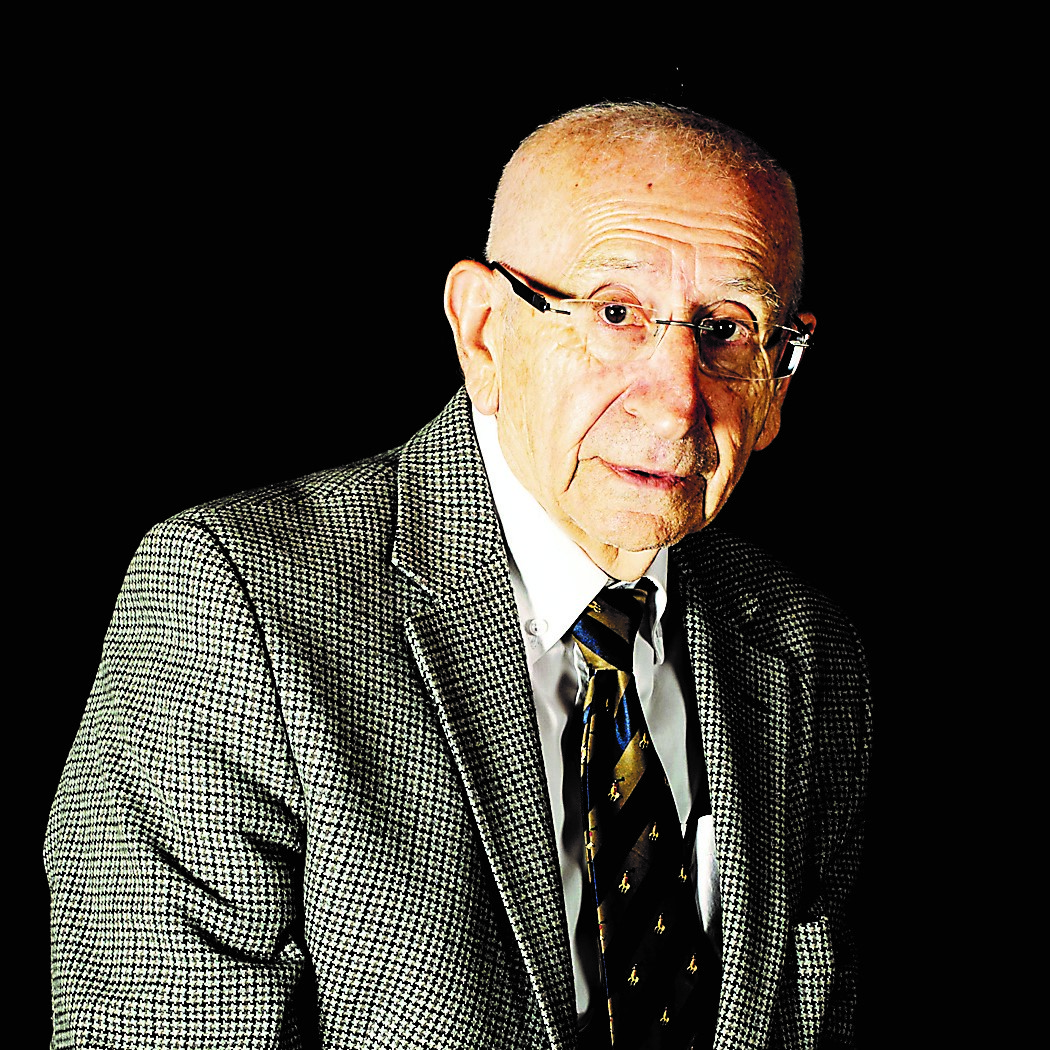click to dowload our latest edition
CLICK HERE TO SUBSCRIBE TO OUR NEWSLETTER


Published
4 years agoon
By
adminNICOLA MILTZ
“It looked like 1943,” he said. “We had no electricity and of course, communication was cut off.”
The fact that he had no electricity because of a water leak in the upstairs flat above his was an “nuisance” which compounded the lockdown, he said.
However, the Matzners of Cheltondale got through it with characteristic resilience and grit.
“Neighbours helped to salvage our food, so it was easy to survive the food part. The thing is to be inventive and dance. Dancing is the most important thing – to dance your way through life’s difficulties,” said Matzner, who was born in Strasbourg, France, and survived the Holocaust by being hidden in convents in Lourdes, Pau, and Les Nayes until he was retrieved in 1945.
To this day, he doesn’t delve too deeply into his past.
“I don’t like to recall it. It’s of no use whatsoever. I spent three years in lockdown in convents and other places. That’s the way I grew up. It’s difficult to go into details.”
However, “This does remind me of those times, and what it can do to a person. It’s not easy, the connections. For many, a lockdown is atrocious, even for those who have never experienced it before. It’s better to be positive, if one can do that.”
Holocaust survivors are among those most vulnerable to coronavirus. In normal circumstances, spending time with family is their “chicken soup”. However, social distancing has intensified feelings of isolation. This year’s lonely Passover sederim and virtual Yom Hashoah commemorations have weighed heavily. The annual Yom Hashoah events would usually offer them the opportunity to meet up with the only people in the world who truly understand the horror of what they experienced.
Shirley Sapire of the Johannesburg Holocaust & Genocide Centre said most survivors feel lonely.
“They feel cut off from the world. Some who are used to driving suddenly find themselves confined, unable to do their shopping or go to the hairdresser. We call on them once or twice a week to make sure they are ok.”
Sadly, those who are healthy and active are now no longer able to enjoy the monthly meetings at the Holocaust & Genocide Centre, where they gathered for entertainment and companionship.
However, Sapire said most of them say that they have lived through far worse.
“They are all pretty stoic, enduring this time without complaining,” she said. “There is a sense that this is nothing compared to what they lived through.”
Irene Klass, 88, who was a child in the Warsaw Ghetto, said this was a lonely period in her life. Used to playing Kalooki with friends, having her hair done once a week, and driving to the shops, she is now confined to her home in a retirement village where she lives alone. Her two daughters and grandchildren live overseas.
“All I can do is read, watch television, and listen to the radio. I also speak to friends on the phone. I try to walk twice a day. It’s quiet, I don’t see a soul, the exercise is good.”
Lately, she said, she has been flooded with recollections of her youth.
“Memories of being in the Warsaw Ghetto have resurfaced. When you are a child, you don’t experience it the same way as an adult. We were four people living in one small room. We couldn’t go out, we couldn’t do very much at all. They say history repeats itself, but this is altogether a different enemy we are fighting.”
Helene Sieff, 83, is a cancer survivor, and has hurt her back.
Born in Brussels, she lived as a Catholic child with Josine Bobricheff, a Righteous Among the Nations, who hid her and looked after her during World War II.
“I experienced a lockdown once in my life as a child. I never thought I’d experience it again in my wildest dreams. Although there’s no comparison,” she said.
“I’m trying not to feel sorry for myself because there are many worse off, but it’s not easy. I feel like a trapped rabbit in a hole who wants to go out but instead pops its head up, looks left, looks right, and goes back inside again. I can’t move, I can’t go anywhere, I can’t do anything. I’m imprisoned all over again, but I’m a survivor.”
Well known Holocaust survivor and educator, Don Krausz, 90, is in good spirits.
“I have a vast library, and find that after a lifetime, many books of interest are worth reading again. Being retired I can’t say that it has made a great difference to my life except that my girlfriends don’t call as often and I’m forbidden to visit them.
“Having been a loner since the war, I don’t need much company, and besides, I was blessed with 52 years of happy marriage. I still drive, and I’m only two blocks from the Killarney shopping centre. When I run short, I scrounge from friends and neighbours. This isn’t a difficult time for me. In the camps we ‘lived’ on one slice of bread with trimmings for breakfast, no lunch unless one was sent out to work, and a litre of boiled water called soup in the evening. No meat, fat, oil, potato, or much of anything else. This gave us on average three months of ‘life’ after which the menu was changed to lead or cyanide.
“With this kind of background, I can’t say that lockdown upsets me much. I don’t feel anxious or uncertain even though I relive the Shoah every night, but that has nothing to do with the virus.”
Said Matzner, “I pray we will come out of this with renewed strength to face a new world. It’s an historic time.”
